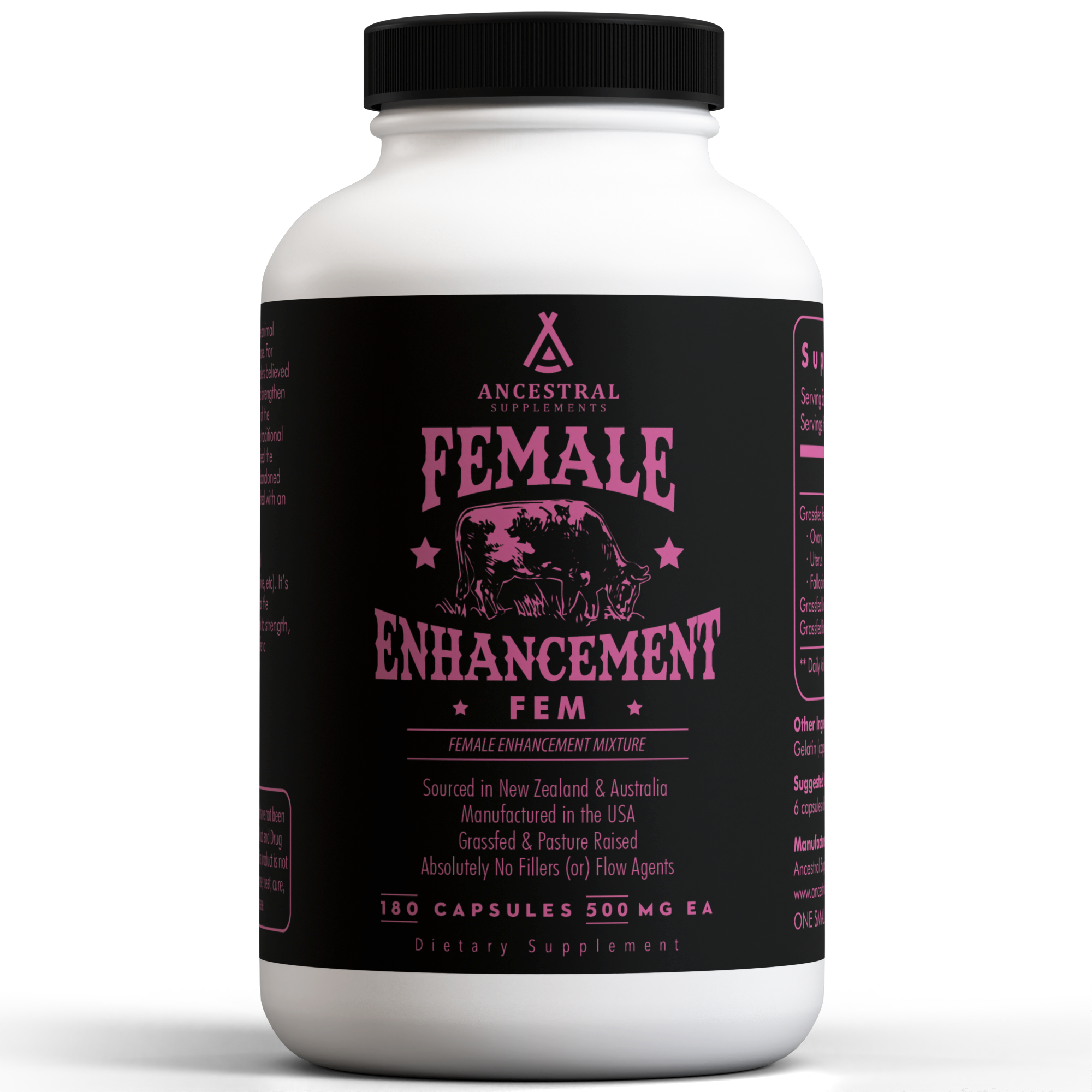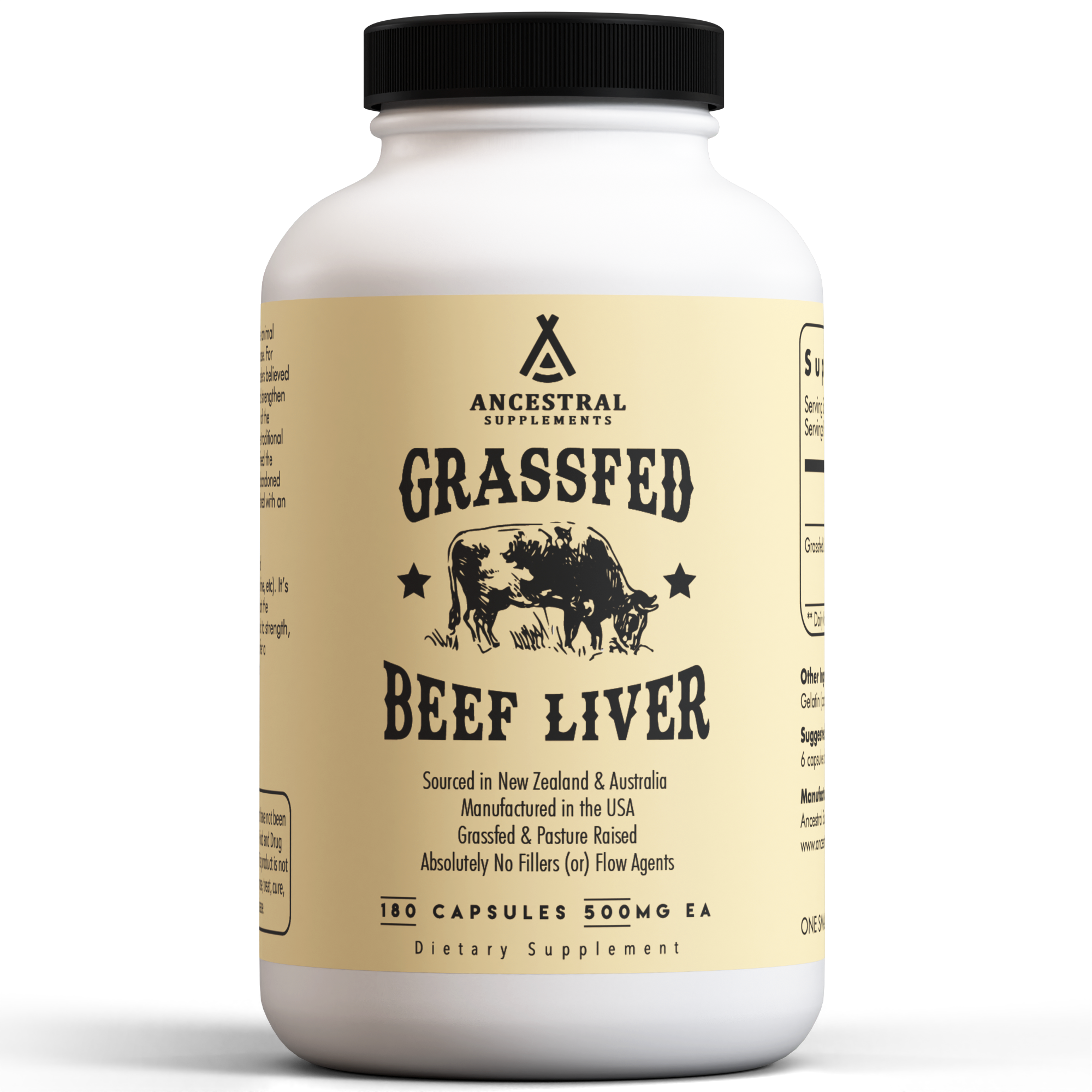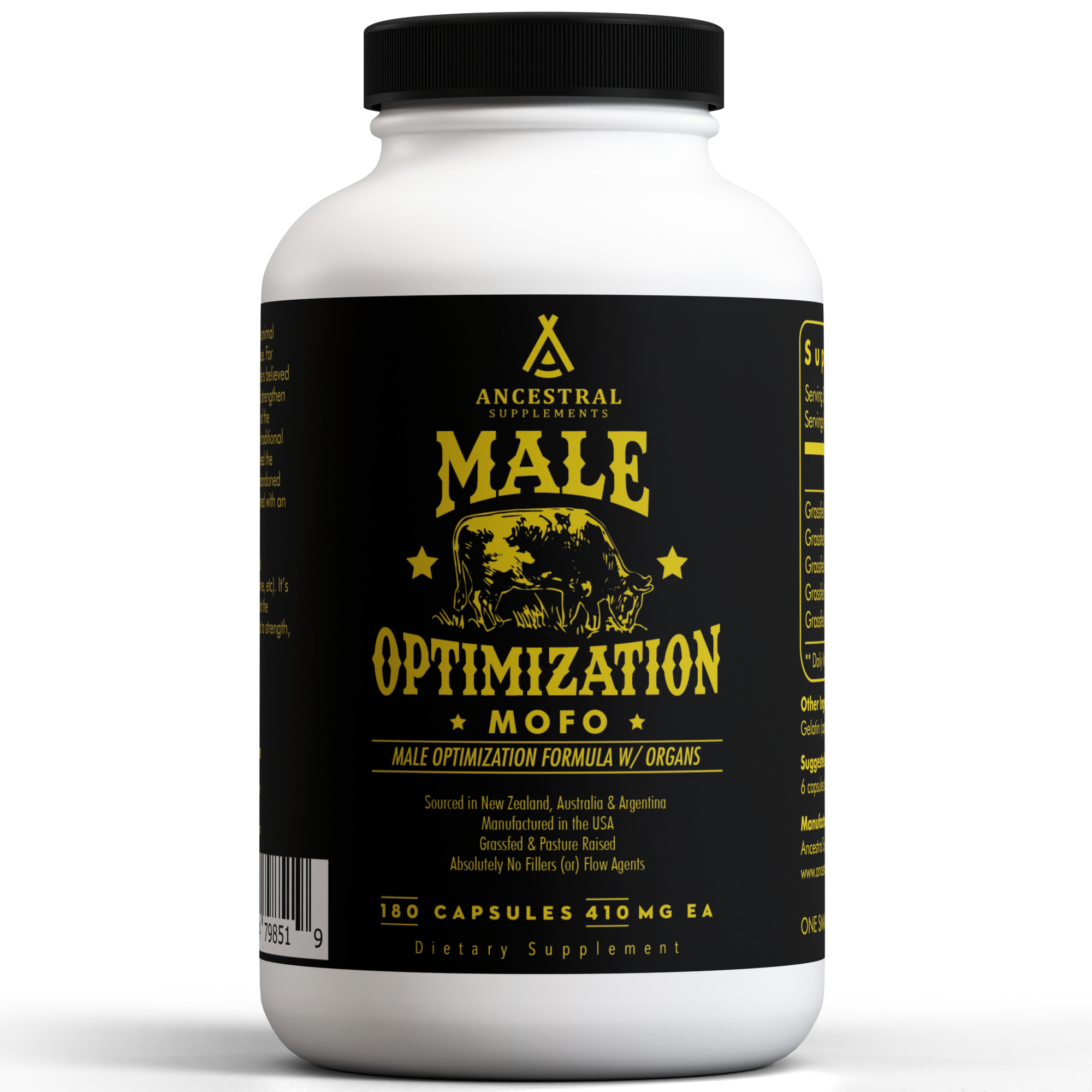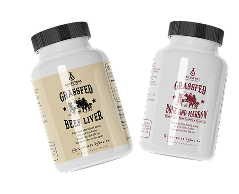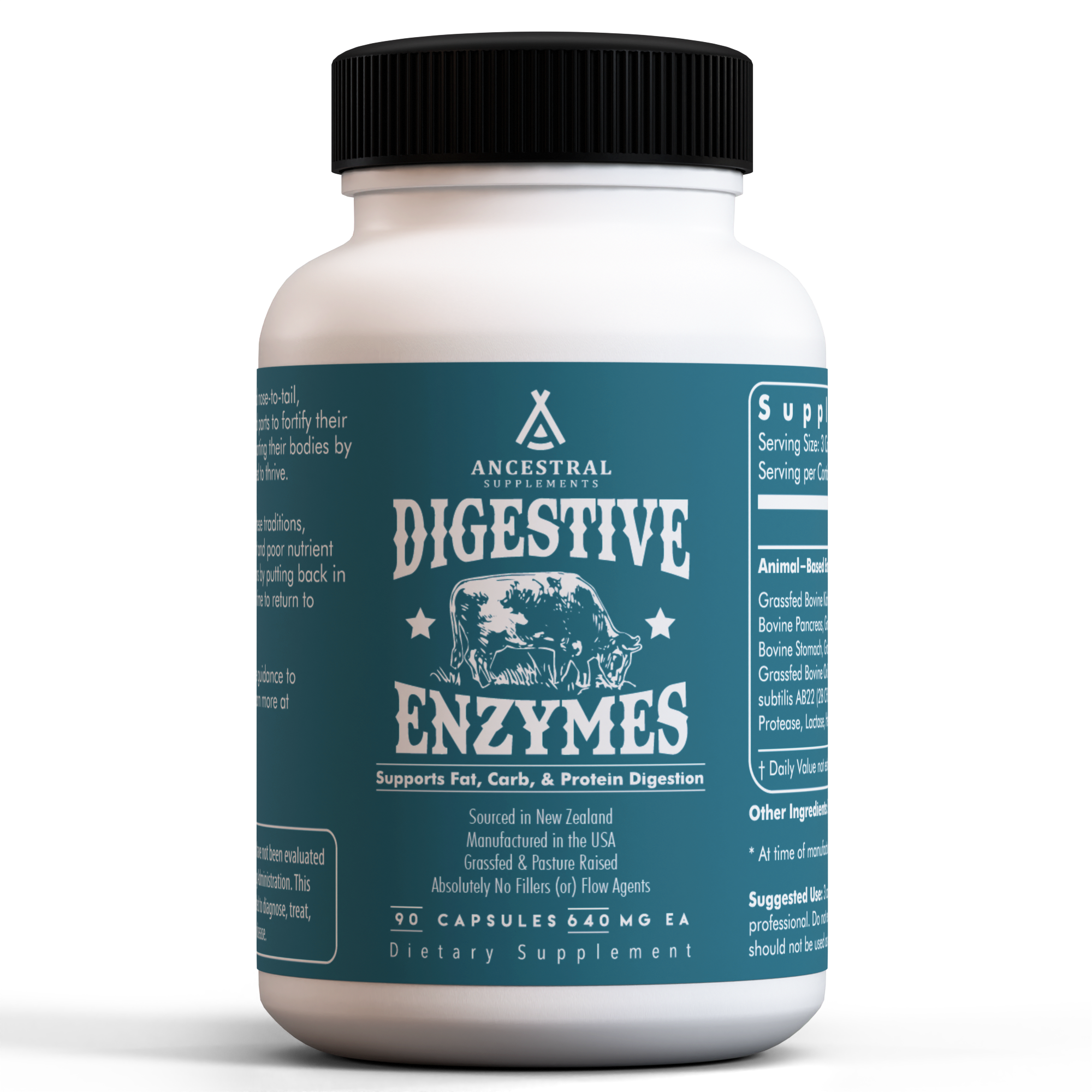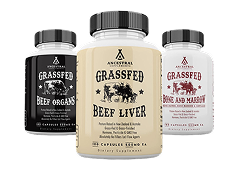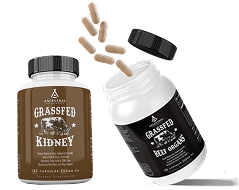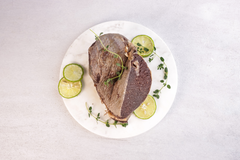Bone Broth Protein vs. Whey Protein: Which Is Right for You?

If you’ve been shopping for protein powders, you’ve likely come across two very different options: bone broth protein and whey protein. Both can help you meet your daily protein needs, but they come from different sources, offer unique benefits, and serve different health priorities.
Below, we'll cover how each one is made, how the two compare, and how to choose the best option for you.
What Is Bone Broth Protein?
If you’re exploring the world of protein powders and looking for something that goes beyond muscle gains, you might want to consider bone broth protein (or BBP).
This unique supplement delivers not only protein but also a variety of other nutrients that support gut, joint, skin, and immune health.
Like bone broth itself, BBP can be considered a "functional food" because it has multiple uses and nutritional health perks, all rolled into one small serving that you can consume daily.
How Bone Broth Protein Is Made
Bone broth protein powder is essentially dried bone broth.
Bone broth is made by simmering the bones, cartilage, tendons, and ligaments of animals (usually cows or chickens) in water for a long period of time, typically 12 to 48 hours. This process helps to draw out naturally occurring, beneficial nutrients like collagen, gelatin, amino acids, and minerals, leaving behind a stock (broth) that's nutritionally rich.
After simmering these parts:
-
The bone broth is strained to remove any solids.
-
It's then dehydrated into a powder through a gentle drying process that retains its valuable nutrients.
-
The result is a concentrated protein powder, which is rich in collagen protein and free from dairy, soy, nuts, grains, and other common allergens.
-
Some BBPs are also flavored, such as with cocoa powder or vanilla extract, to offer more options for those who prefer a sweeter taste.
Key Nutrients in Bone Broth Protein
As you can see, BBP isn’t just a source of protein. It’s a whole-food-based supplement that's packed with nutrients that go beyond muscle building.
These nutrients support gut lining integrity, joint lubrication and comfort, and even youthful, plump skin, and potentially hair thickness or growth.
Here are some of the key components of bone broth protein:
-
Collagen (Types I, II, and III): There's more than one type of collagen (in fact, there are an estimated 28 types!), and each collagen type has unique roles in the body. Types I, II, and III offer support for joints, tendons, and ligaments, skin elasticity, and strength of the gut lining. Beef bone broth primarily contains types I and III collagen, while chicken bone broth primarily contains type II. "Multi-collagen" powders often contain a mix of different types to provide a variety of benefits.
-
Glycine and Proline: These are amino acids, the "building blocks" of protein, that are especially important for the production of collagen. Glycine also assists in a healthy inflammation response and sleep, exercise performance, and detoxification, while both glycine and proline support connective tissue repair. Both amino acids can also support healthy energy levels.
-
Glucosamine and Chondroitin: These compounds are naturally found in connective tissues and are known for their ability to support joint health. They help cushion the joints and may ease discomfort associated with joint wear and tear.
-
Hyaluronic Acid: This molecule acts like a sponge, drawing water into tissues to keep them hydrated. It’s especially beneficial for maintaining moisture in the skin (which is why hyaluronic acid is found in many serums and moisturizers) and for lubricating joints and other connective tissues.
-
Minerals (Calcium, Magnesium, Phosphorus): Bone broth protein provides essential minerals that support strong bones and healthy muscle function. Calcium is key for maintaining a healthy and strong bone structure, magnesium helps regulate nerve and muscle activity, and phosphorus is involved in energy production and bone formation.
What Is Whey Protein?
Believe it or not, whey protein is a natural byproduct of cheese production. It’s derived from the liquid part of milk that separates during cheesemaking.
Whey protein is prized for its high protein content and rapid absorption, which explains why athletes and those looking to put on muscle find a lot of value in using it. It's one of the most researched protein sources in sports nutrition and is commonly used to improve body composition (including for weight loss), enhance muscle growth and recovery, and boost overall protein intake.
Its origins go all the way back to ancient Greece, where Hippocrates (the “Father of Medicine”) is believed to have recommended whey as a healing tonic. Commercial whey protein powders as we know them today became available in the 1970s and 1980s (more than 50 years ago), and they've since grown to a billion-dollar industry.
Types of Whey Protein
There are several forms of whey protein available, and each differs in terms of purity, processing, and digestibility.
-
Whey Concentrate: Contains about 70–80% protein. It also includes some lactose and fats. It's more affordable than other types of whey protein, but less pure overall.
-
Whey Isolate: Contains 90%+ protein with almost no lactose or fat. It's a better option than whey concentrate for people with lactose sensitivity since it contains little lactose.
-
Whey Hydrolysate: This type is "pre-digested" (partially broken down already into smaller units) for faster absorption. It's often used in clinical nutrition or post-surgical recovery since it's easy on the digestive system and often tolerated well, even by those with sensitive GI systems.
Whey Protein Nutritional Profile
Whey is known for being a complete protein, meaning it contains all nine essential amino acids that the body cannot make on its own and that we must obtain from our diets.
It’s especially high in the amino acid called leucine, which is a key trigger for muscle protein synthesis.
Typical nutritional content per 1 scoop of whey protein (25–30 grams):
-
Protein: 20–25 grams
-
Calories: 100–130
-
Carbs: 1–3 grams
-
Fats: 1–3 grams
-
BCAAs (branched-chain amino acids): About 5 grams
Bone Broth Protein vs Whey
Trying to decide between bone broth protein and whey? While both are excellent sources of protein, they serve different functions in the body. Here’s a detailed breakdown of how they stack up in terms of protein quality, digestion, muscle support, and more.
Protein Content and Quality
Both bone broth protein and whey deliver a solid dose of protein per serving, but they vary in density and amino acid composition.
Protein per serving:
Whey protein powders typically provide 20–25 grams per scoop, while bone broth protein offers slightly less, around 15–20 grams per serving. If you're looking strictly at grams per scoop, whey edges ahead.
Amino acid completeness:
Whey is considered a complete protein, meaning it contains all nine essential amino acids your body can’t produce on its own. This makes it a convenient, all-in-one source and helpful for people who don’t eat a wide range of protein-rich foods.
Bone broth protein, by contrast, is not a complete protein, but it shines in its high levels of collagen-specific amino acids like glycine, proline, and hydroxyproline. These aminos are crucial for rebuilding connective tissue, skin, and the gut lining, even if they don’t directly build muscle the way BCAAs do.
Biological Value (BV):
Biological value refers to how efficiently your body can absorb and utilize a protein.
Whey has a very high BV (~104), making it one of the most bioavailable protein sources. That means your body can use it quickly and effectively, and it's ideal for things like post-workout recovery.
Bone broth protein has a lower BV, but it’s still valuable, particularly for structural repair. Think of it more as a deep-tissue recovery agent, supporting your joints, ligaments, fascia, and gut lining over the long haul.
Digestibility and Absorption:
If you have a sensitive digestive system, the type of protein you choose can make a big difference.
Whey, particularly in concentrate form, contains lactose, which can trigger bloating, gas, or discomfort in people who are lactose intolerant. If you’re sensitive to dairy, this may not be your best option.
Bone broth protein, on the other hand, is naturally dairy-free and hypoallergenic. It’s gentler on the stomach and often easier to digest for people with sensitive digestive systems.
Gut Health Support
Protein isn’t just for muscles; it's also needed for gut repair and many other functions.
Bone broth protein contains glycine and gelatin, which support the intestinal lining. These nutrients may reduce gut inflammation and support the tight junctions that keep your intestinal barrier strong.
Whey doesn’t necessarily offer much in this area and can sometimes even worsen gut issues in sensitive people.
Absorption Rate:
The speed at which your body absorbs protein can influence when and how you use it.
Whey is usually absorbed pretty rapidly, making it ideal immediately after workouts when your muscles are primed for recovery.
Bone broth protein is absorbed more slowly, which may be preferable for steady nourishment and overall tissue regeneration, particularly when taken between meals or at bedtime.
Post-Workout Effectiveness
Whey is the go-to post-workout choice for most athletes and fitness enthusiasts. It floods your system with muscle-building amino acids right when you need them most. But bone broth protein isn’t without post-workout value.
Muscle synthesis:
Whey is ideal right after strength training, sprints, or HIIT sessions when fast-absorbing protein is critical for repair and muscle gains.
Bone broth protein may not stimulate muscle growth to the same degree, but it excels in joint and connective tissue recovery, making it a smart addition if your workouts are intense or if you’re dealing with chronic soreness or injuries.
Looking for a clean, complete option that delivers the best of both worlds?
Try Ancestral Protein Powder, a first-of-its-kind formula combining grass-fed beef bone broth with 12 superfoods, including collagen, organ meats, hyaluronic acid, and adaptogenic mushrooms.
Each scoop (available in vanilla and chocolate flavors) provides 20 grams of dairy-free protein, while also supporting gut health, joint mobility, immune resilience, and more. With 0 grams of carbs and just 90–100 calories, it’s the ultimate way to nourish your body from the inside out, without bloating, fillers, or artificial junk.
Additional Health Benefits
As you can tell by now, BB offers perks that go beyond building muscles. Benefits of bone broth protein include:
-
Supporting joint and skin health: Thanks to collagen, glucosamine, and chondroitin.
-
Promoting gut health: Supports the mucosal lining and may help minimize bloating or cramps.
-
Providing immune support: The amino acids and minerals in bone broth can help enhance immune resilience and reduce systemic inflammation. This is in part because of how bone broth assists in gut lining integrity and general gut health (about 70% to 80% of the immune system is found within the gut).
Potential Side Effects and Considerations
While both proteins are generally safe, it’s worth knowing some potential issues that affect some users.
Whey: May cause gas, bloating, or acne in those sensitive to dairy. Some isolates are processed with chemicals that can be irritating to the gut, which is why it's important to buy a high-quality whey with minimal additives.
Bone Broth Protein: Often more expensive due to the cost of creating high-quality bone broth (especially if made from grass-fed or pastured sources). Some lower-quality products may contain heavy metals or additives, so do your research and buy from a reputable brand, such as one that is organic and made from grass-fed animals.
Ideally, choose third-party tested powders with transparent ingredient sourcing.
How to Choose Between Bone Broth Protein and Whey
Your choice should ultimately depend on your goals, sensitivities, and preferences. Here’s how to think about it:
Choose bone broth protein if:
-
You want joint, gut, or skin support
-
You follow a carnivore, Paleo, or dairy-free diet
-
You have digestive issues or lactose intolerance
Choose whey protein if:
-
You’re focused on muscle gain and recovery
-
You tolerate dairy well
-
You want the highest amount of complete protein per scoop
Want the best of both worlds? Some people use whey post-workout and bone broth protein between meals or at night for recovery and skin repair. There's no downside to using both, especially if spaced apart, and this might lead to even better results. For example, you can add bone broth protein powder to coffee in the morning, and then have whey protein in a smoothie later on.
Conclusion: Bone Broth Protein vs. Whey—Which is Best?
Bone broth protein is a powerful supplement that bridges the gap between food and function. It supports not just your muscles but also your gut, joints, and overall resilience.
While whey protein is still king for rapid muscle gains, bone broth protein is the go-to for those seeking nourishment that aligns with ancestral health, digestion, and longevity.
If you're looking for a high-quality protein source, try our Ancestral Protein Powder, which is made from grass-fed beef bone broth, organs, and adaptogenic mushrooms. With only clean, transparent ingredients, Ancestral Protein Powder allows you to experience a protein source that does more than just fuel your workouts.

